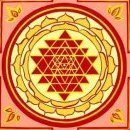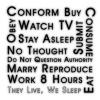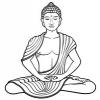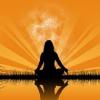Search the Community
Showing results for 'Dream'.
Found 7,590 results
-
In Poland we have an idiom that says "Dream - Mara, God - belief" (Sen - Mara, Bóg - wiara)
-
B ut ... but .... why Sydney for Gawds sake ? Up here, I can go to beach 10 am Sunday morning, mid summer, and there isnt a footprint on it some times ! Last time I tried that in Sydney at 8 am, I couldnt even park near any beaches (in the middle south area) I ended up going to Botany Bay and swimming in the water near the container terminal ... nice ! Adelaide eh ? I used to dream of going to Adelaide ..... when I lived .... near Bordertown (not even in Boredomtown Bordertown We went to Bodertown once ... saw some girls there we did
-
Steve, what is the practice of three doors as outlined in step 2? The Tibetan methods seem awfully similar to those in Stephen LaBerge's book. It's no surprise as the Buddhist methods are what gave rise to the methods we have here in the west. I have taken the methods given by LaBerge and have modified them in order to make them simpler. I will report back on their effectiveness in the months to come. Efficacy and practicality are what I look to achieve. As of right now I'm also studying Taoist Dream Practices (the CD audio set by Michael Winn) and hopefully I will be able to take what works from there. I'm hoping it all works as Michael claims that while the Tibetan methods are supremely powerful, the Taoist methods give equal or better results and are more effortless. Some of the Taoist methods are also similar to the Buddhist methods as well like the different sleep positions (I find the Buddha posture and it's reverse equivalent to be rather uncomfortable so I prefer laying back and facing the ceiling). I will experiment with those methods and also plan on taking a Taoist dream practice course with Juan Li. Eventually I'll learn from the Tibetans as well. This is a topic that interests me a great deal as Lucid Dreams are without a doubt the most pleasurable and exhilarating experiences I have ever had.
-
A bit more about the practice - There are four basic components: 1. Upon awakening we review the night's experiences, give thanks for success, be OK without it, and recommit to the practice in the coming day 2. Throughout the day we continually remind ourselves - "this is a dream", especially when confronted with challenging situations and strong emotions. And we try to connect like this at a deep level through the practice of the three doors 3. Before sleep we review the experiences of the day, purify with breathing exercises, and set a strong intention to have clear and lucid dreams through meditation and prayer 4. As we go to sleep we practice different sleeping positions, breathing, and visualizations to induce specific types of dreams related to the 4 qualities of enlightened mind - peaceful, increasing, powerful, and wrathful. Finally, as we begin to see progress, there are exercises to work on in dreams to develop and stabilize the experience further. Really good stuff but not without a fair dose of tradition. It's interesting, Rinpoche is one of the more progressive Tibetan teachers out there but in the dream teaching he maintains a fair bit of tradition. I'm beginning to think that he is actually quite traditional and that what appears to be a secularization of traditional Tibetan methods is really tradition in disguise. Happy dreams!
-
Thanks Steve. I've had lucid dreams - more when I was younger than now. Last year I made an effort keeping a dream diary and setting intent and achieved a lucid dream but for various reasons my attention moved to other things. So I didn't keep it up for more than about a month. Some of my dreams in the past have been accurate prognostications of detailed events - but without any clear meaning or reason. Very interested in other peoples accounts and particularly methods (I've up read a few different styles). So thanks for starting this.
-

Taoism and jung: synchrnicity and the self. By harold coward
ChiForce replied to LAOLONG's topic in Daoist Discussion
Maybe in their dreams. Appearance of numbers in your dream states and in your real life are very common. -
Sketchbo0k said: "I would love to learn this. Could you perhaps write a bit about it in a new thread?" Dream Yoga is becoming quite popular. There are many varieties. I practice the Bön method which comes from a very important tantra called the Ma Gyü. There are significant differences between views from different practices. In particular, western dream teachers tend to emphasize content, whereas the Tibetan approach does not concern itself too much with content. There are Tibetan practices that involved dream content but it's not important in the dream yoga practice itself. For the Tibetans, the practice is much more about recognizing the nature of dream and how that relates to our lives, deaths, and the nature of mind. The content, according to the Tibetans, is simply a reflection of the content of our daily lives, feelings, and thoughts. In the Bön view, as well as that of many shamanic and indigenous cultures, waking life is no more "real" than dream life. From the perspective of waking life, being awake seems real and the dream seems illusory. From the perspective of the bardo and the absolute, waking life is equally illusory and transient. Dream yoga trains us to become aware, in the dream state, that we are dreaming. In the dream state we are not limited by the same physical, emotional, and psychological constraints as in the waking state. Once we are able to become lucid in dream, we can use that additional freedom to change things that we have difficulty changing in our daily lives. We can take advantage of the fact that we sleep approximately 1/3 of our lives (25 - 30 years for the average person), and try to give ourselves some of that additional time to practice. If we are able to become lucid in our dreams we are more likely to be aware and mindful during our daily lives and we are more likely to be lucid at the time of our death (and beyond, if you subscribe to such notions). The ultimate goal of dream yoga is to help us move towards complete liberation so that we may be of benefit to all others. The basic method involves daytime practices for setting the proper intention upon awakening and before sleep, practices to reinforce the dream-nature of our waking state throughout the day, practices to induce certain types of dreams, and practices for developing and stabilizing lucidity in dreams. If you are interested in this, there are several ways to get instruction. The book -The Tibetan Yogas of Dream and Sleep by Tenzin Wangyal Rinpoche gives a comprehensive outline of the method and practical instructions. It's all you need to get started. He also hosts online workshops on dream yoga once or twice a year through glidewing productions. More expensive but also much more supportive with personalized instruction from Rinpoche and the opportunity to connect with other practitioners in an online forum. Finally, he occasionally hosts retreats on the topic - the most recent was last month. Quite an amazing experience - he's a phenomenal teacher and knows how to connect these sometimes esoteric teachings directly to your life in a very practical way. One word of advice - this is a practice that takes a long time and lots of patience. It is very easy to get frustrated and give up. Be prepared to really make an investment and it will eventually pay off. As I mentioned, there are lots of other resources in different traditions. Alan Wallace has written a book on Tibetan dream yoga, Dreaming Yourself Awake. I can't comment on the book but Alan is also an excellent teacher. I'm hoping there are other practitioners here that will introduce their practices. Good luck and good dreaming!
-
Don't go there. Bush launched his Iraq War as a Christian crusade. I saw it in my dream. He was a preacher and talking about his crusade, inside his church. Think about this as to what it means to say America must spread the seed of democracy across the world???
-
Dreaming about sex ? I dream about dreaming about dreaming about sex. Mostly it's lawn mowers and travel programmes. The only cultivation I've done was planting some taties and a couple of deciduous bushes. I stick to my opinion. Archetypes........roars with laughter.
-
You're right, apart from the size of my boat...but doing all of these things to what end, and for who? To dream is the false self and to experience things physically is true self?
-
My practice is dzogchen in the Bon lineage of Zhang Zhung Nyen Gyu. My secondary practice is Dream Yoga from the Ma Gyu Tantra. I have not found this forum to be a comfortable or supportive place to discuss specific results. I can say that the practices have profoundly impacted my life, work, and relationships in beautiful ways so I would say, yes - good results.
-
Not to get too far off topic, but this reminds me of a visit I had a while back. I was visited by a person in my dream, something inside me knew they were a master and I asked them to take me as a disciple, but they replied that I have to choose 1 thing. The master was referring to life, and me choosing one thing, with regards to my work. I still havent choosen one thing.
-
Hi Lois, The night before I read a post of yours for the first time, Nungali was in my dream, but he didn't look like himself, he looked like you! (No, folks, I'm not making this up.) Can you explain what may have happened?
-
Is beyond lucid if you have a clear light dream. In your dream state, you have reached the non-duality state which is manifested by a clear, luminous white light and it is called rigpa. You are basically meditating in your sleep without consciously knowing that you are meditating.
-
There are two different things -1. Practicing meditation while lucid in the dream state. This is a part of dream yoga. 2. Achieving "lucidity" in sleep in the absence of dream. This is referred to as sleep yoga or the sleep of clear light.
-

how soon before the US in same state as Greece?
zerostao replied to 3bob's topic in General Discussion
Greece is not being asked to swallow many bitter pills in exchange for a realistic plan of economic revival, they are asked to suffer so that others in the European Union can go on dreaming their dream undisturbed. BY SLAVOJ ZIZEK PUBLISHED 20 JULY, 2015 - 07:00 http://www.newstatesman.com/world-affairs/2015/07/slavoj-i-ek-greece-courage-hopelessness -
One of my current practices is dream yoga. Through this practice we begin to see the nature of dream and, through that, the nature of wakefulness. As we begin to see that they are of one taste, the distinction softens. Rather than concerning myself with how much or little I should sleep, I'm more focused on being conscious, being lucid, whether I am living in the waking or sleep dream. To address the original question, I find that skillful meditation is as restful and rejuvenating as sleep. I think that as we are able to more fully and completely rest during our waking meditation, our physiological, energetic, and psychological need for sleep can diminish. And imagine when we are skillful enough to meditate in sleep as well! I've had a few, brief experiences of this but it's very inconsistent still.
-
But dreamers, the ones who live life like a dream while they are awake are at a natural state of deep sleep while awake.
-
it's actually 700 plus somebody posted it on scribd for free. Rereading it - I find my recent alchemy study makes Measuring Meditation easier to understand. But I would say what unifies humanity is the 1-4-5 music intervals - not Mahayana Buddhism. Plus Nan said that if the physical body is sick at death then the mind can not be emptied out due to lack of qi and so the samadhi is not lasting and the spirit just goes into the void instead of enlightenment. That's quite pertinent to the topic considering it shows you need the qi to give power to the shen or else the shen becomes delusional at death in a ghost dream state. I have seen these ghosts floating around the original qigong master, going to him to get healed - I suppose attracted to his qi energy. Anyway then Nan died of physical illness as he was a smoker and got pneumonia. So he didn't really live up to his teaching - too bad. But still a fascinating read. So earlier in the thread I mentioned how Taoist Yoga says the left hand is the yuan shen channel - the center of the hand. Bodri and Nan talk about the left big toe as key to brain visualization - and this would be part of the yin qi and yuan shen channel I think also. I then realized that actually Michael Corballis the scientist talks about how people keep track of time with the left hand - and so when making a beat with the hands, the left hand keeps a steady beat to keep track of time while the right hand does syncopation. So the left hand is right brain dominant which makes sense as a Yuan Shen channel since the right brain is visualization dominant but the left hand is also time dominant - and if we think about it light - at the speed of light the sense of time stops into eternity - and so real visualization is a sense of eternity. The time-frequency aspect is right brain dominant through light but is accessed through music as keeping time - rhythm. For a long time it was thought other animals could not keep track of time - but they learn that some birds can do so - and the question is how language is learned and what this has to do with time. There are a lot of quantum biology secrets out there - but I'm just saying that the big left toe secret mentioned in the book is based on the same secret of the left hand as the yuan shen but also the yin qi energy of the heart's fire. The toe channels have to open up as the yin heel channels - the yin qi energy building up as the first step in the alchemy training.
-
Try it again. This time, try a larger old city cemetery with graves dated back to 18th century or even 17th century. Instead of minding your own business, try to read the names of the tomb stones and the date the deceased died. Imagining their lives. Some burials are grouped in a family with several generations. Walking up to some of the old, old mausoleums. Feel the air surrounding them and to breathe in the moist, damp air. If possible, to meditate next to them. Do that for 5 hours or so. Not long ago I used to hike around my local historic cemetery. Is so big that you can not finish the hike in 1 day. So, I went back again the next 4 days. On my 4th day, I got nauseated and feeling dizzy in the middle of the day. And I felt unusually cool as well...excessive yin energy...for the next 2 weeks. A cemetery has certain smell. I came up on a very sad grave site. A grave site of a 10 month-old infant girl. She was from South Africa and died in South Africa. Apparently, she was buried in the US. I google her name and apparently she died from some medical condition. She died in her sleep. I had one interesting dream but fortunately I have no spirits attaching me. There are reports that spirits getting attached to the individuals visiting the cemetery. Just because you close your mind to the spirit world, it does not mean they don't exist.....your mind game would only carry you so far. Certainly, it won't help you in your cultivation process, not at all..... No, you don't get smarter or wiser because you aren't connected to the spirit world, but only to your mind and your ego. They are normally very limiting....
-
For the OP, here is the deal. This house used to be a residence of an old king's lover. So, there are secrets that shouldn't be revealed due to the nature of the relationship. Something embarrassing maybe. The woman in red is probably the lover herself. It could be a treasure but a treasure that may reveal some embarrassing element of the king's relationship with the lover. More than likely an embarrassing moment for the lover more than for the king. If you are planning to live in this house and in this room, you better tell your family about this dream you have and why they should just drop their treasure hunting....
-
:-) breaking our mental conditioning is a great taboo breaker. We live in a self imposed mental prison in which we are prisoner, prison warder and prison. There are no obvious walls or boundaries yet we create the illusion that there are and then add further illusions to make it appear as if we are free. Our subconscious conditioning throws up all kinds of warning flags to discourage us from breaking these carefully crafted illusions. Your analysis of the OPs dream seems sound. I also think this is why there is a use of 'I' and 'you'. It's a subconscious way of holding the belief 'it is this way for everyone, that is normal'. I remember when I believe the first breaking of this boundary happened to me. I was gripped with terror for what seemed like hours. It was if I was being murdered by some invisible foe and fighting for my life. I began to regret meddling with meditation at that point. The only way I managed to resolve it was simply to give in to the fear, to give up control and accept whatever fate was in store. Within minutes I began to relax and then things got really serene. It only happened once and I've never experienced anything like it either before, or after.
-
In the first (original) post, you said "i get nightmare every single night, i scream every night because of nightmares". Now, you said "since i created this topic, i have had 2 nightmares lol". So, you can consider that sharing and asking for help has been useful. You have made progress. I remember reading somewhere that dreaming a skeleton indicates that one is progressing in the PATH/dhamma. But, i am not a dream-analysis expert, so only you will know the real relevance of this dream to your life. But, Have you considered the possibility that the treasure in your dreams is actually referring to the treasure of dhamma that you have lately incorporated seriously into your life (through meditation) ? Consider that alternative too. In fact, this more valuable than any material treasure, if you have serious faith in the PATH. Of relevance would be the question of how long it has been since you have take up spirituality (seriously) into your life and started related practices (like meditation) ?
-
since i created this topic, i have had 2 nightmares lol i dont know what has happened, its like i am consistently getting nightmares it has just started happening from 1,2 months ago first dream i had was where i was on my bike in a rainy night, and a bus past me, someone in that bus was showing me his hand, as a sign of five after that my bike stooped near a black lady, she was young but she looked like a begger and she was trying to frighten me and my bike was not starting at that point lol and last night i saw a skeleton actually my house is quite old and there is a possibility of treasure here, but i dont want that treasure, i have no intereset so last night i saw that my aunt was saying to me that the treasure of this house slipped out of our hands, and i said i dont want this treasure pls dont even try, whoever is the owner of this treasure probably dont want us to take this but she still opened a hole on the wall of my house, and there was a well made place on the wall , like a closet to hide something and inside that closet was a skeleton in the dream we were saying that it could be of the king or someone else actually i had this treasure related dream quite a few time i have mentioned that i had a dream about my room which scared the hell out of me i saw a lady getting so angry over me , because i was trying to make a hole on the wall of my room and get the treasure her eyes were red, and she was also wearing red
-
Daniel Ingram, MD, is a key figure in 'hardcore/pragmatic dharma' along with folks like Kenneth Folk and Shinzen Young, advocating a goal-oriented, straightforward technical approach to Buddhist practice which emphasizes vipassana (probing into the Three Characteristics of experience), particularly the Mahasi Sayadaw noting technique, stripped of dogma so pragmatic tech and real results are left. At his forum, The Dharma Overground, there is a controversial cultural norm of being open about attainment, and expecting practitioners to become awakened with good practice. His book, 'Mastering the Core Teachings of the Buddha' (MCTB) is currently being updated into MCTB2. Bio 1) What teachings/systems/lineages have you been exposed to? A: Many, but it may depend on what you mean by “exposed”. Major ones, in some sort of order: Mahasi, Thai Forest, Sri Lankan Buddhist, Western New-Age/Hyper-psychologized Vipassana, Vedanta, Mahayana, Vajrayana, Mahamudra, Dzogchen, Zen, Non-aligned Non-Dual, Christian Mystical, Western Magickal (Golden Dawn-based, Thelema, Wicca, Chaos Magick, others), Qabala (spell as you will), Taoism, Shamanistic, Native American, New-Age in general (crystals, auras, spirits, fairies, etc.), Actualism, Scientific Materialist, Classical Greek Philosophy... That’s a pretty good start but incomplete. 2) What practices have you been exposed to? A: Many, but again it depends on what you mean by exposed. My primary meditative practices have been vipassana of various styles, samatha of various styles, Brahamaviharas, Magick, and Dzogchen/Mahamudra-influenced practices. 3) Who have been your Buddhist teachers and are you currently practicing and studying under the guidance of one? A: I have had a lot of teachers of various kinds, including lots of friends who have taught me many useful things, but if you mean formal ones in some sort of traditional or semi-traditional sense, the more important ones were Christopher Titmuss, Sharda Rogell, Fred Von Allmen, Subhana Barzaghi, Yvonne Weier, Norman Feldman, Bill Hamilton, Sayadaw U Rajinda, Bhante Gunaratana, Bhante Rahula, and Sayadaw U Pandita Junior. Really, there were tons of others, with smaller appearances by Christina Feldman, Joseph Goldstein, Chökyi Nyima, and lots of others. Kenneth Folk also was briefly my teacher back in 1996 for about 5 weeks, but that relationship in that way ended then. I am sure I am missing a few. I currently have no teacher in any formal sense, but running an online forum for hardcore practitioners is quite a teacher in its own way, as there are a lot of good and interesting practitioners there. 4) Is there a particular Buddhist tradition that you practice within? A: These days it mostly looks the same to me, but if you need to put it in a labelled box you might call my practice tradition some mix of Theravadan Vipassana and Samatha, with some Mahamudra and Magick thrown in. That is simplifying a great deal but to the point. 5) What is your most recent (last few years) interest in your practice? A: Mostly I just sit when I sit or just recline when I recline, or just drive when I drive, but that is making something seem simple that isn’t, as all sorts of stages and states and things cycle through that are much more interesting than that would make it sound. I also do various brahmaviharas and other formal and less than formal magick. I sometimes do formal samatha practice, sometimes starting with candle-flame kasina. I also sometimes to some free-form energy movement practice. Currently, I am listening to BA Wallace’s Dreaming Yourself Awake and doing more dream practice, as that was how I got into all this stuff in the first place and still a great time and useful. My last retreat was in February and you can read and listen to it here: www.firekasina.org 6) What’s been going on since ‘My experiments in actualism’? A: Lots, as that phase began and ended some years ago. That’s a long time in this business. I enjoyed my time in that phase and would still recommend the basics of what I was focusing on then, in general terms and depending on the practitioner and their goals and abilities. On that relative front, most of what I do is trying to figure out how to balance my life, work, the Dharma Overground, family, rest, music, exercise, service, social responsibility, friendship, health, and the like. It is a complex project but interesting. Practice and results 7) Can you describe the experience of awakening in your system? A: It is not within a system, just is what it is. Everything is where it is, happens on its own, knows itself as part of itself and the field where it is. Those are the major points. That is just how things are, not something in a framework. 8) What are the key features of each of the Four Paths, in terms of: a) The process of attaining each one – any changes in how the insight cycle functions at each one, different emphases in practice needed, etc.? A: That is a huge topic that would probably be better answered for each individual person. Still, were I to say the core of the thing: notice the Three Characteristics of all sensate phenomena without exception all the way through everything: that simple and direct approach will cause the arising of insight and prevent much confusion and complexity. b} What shifts or changes generally result from attaining each Path? A: best to read MCTB for that answer, as it is written down there. The paths are problematic and overly simplistic and naïve as a model, and I much prefer The Simple Model found in MCTB, so, while nearly everyone focuses on the path model, give that one more attention and you will likely do better practice-wise, I believe. 9) Hi Daniel, thank you for taking time out to share your insights with our forum. a) What is your practice schedule like? ie what practices do you do daily and for how long? A: My life is very complex-schedule wise, as I work long and odd hours as an emergency medicine doctor in an understaffed county trauma center. Thus, there is no schedule for almost anything but work, and I fit in everything else when I can as best I can. Still, and this sounds like the standard cliché but it is actually the honest truth: every moment is practice past a certain point. Still, I do formal sitting when I feel like it, which is most days, and I do formal practices when I lay down to rest until I fall asleep. I do formal practices if I wake up and can’t sleep, which is often due to circadian disruption and working shift work evenings and nights. I formally practice often when driving, as paying a lot of attention to the immediate environment is a great idea when driving. I meditate when walking between patients, when looking them in the eye, when listening carefully to heart and lung sounds: all very meditative. See above for my formal practice list. b} What kind of practice schedule would you recommend for a beginner? A: That would very much depend on what you wanted to do, how fast you wanted to do it, and what resources and personal characteristics you had, so it would have to be tailored to the individual to answer that well. c) Here's an Americanized question - What technique have you found gives the best bang for the buck? A: It depends on what you want to do and what side-effects you are willing to tolerate, like medications. For fast progress in insight, I like rapid-style Mahasi practice in high dose on retreat about 18 hours per day, but it can be a very rough ride. For samatha, I think nothing beats candle-flame: see www.firekasina.org. That’s a coarse answer, as really it would depend on the person how I would answer that. 10) What is your definition of nibbana? Is it a state of eternal non-consciousness? If so, what's the point? Also if there is a gap in consciousness and it is discontinuous, what notices the gap? A: Nibbana is not defined by me, particularly, but traditionally in its technical definition it has two aspects: Nibbana without sense data and Nibbana with sense data. Nibbana without sense data is Fruition: reality vanishes and re-appears. It is a nice mental reset and teaches useful lessons, doing something good to the brain, and happens at the beginning of paths. It can help with the attainment of Nibbana with sense data, which is arahatship. In Nibbana with sense data, reality is just as it is, seen clearly, without ignorance, and the suffering caused by ignorance is eliminated. Because of this, both Nibbanas are highly recommended, but the later one is the true goal and very much worth it. These definitions hold up in practice and in theory. 11) In MCTB you briefly mention two Pure Land jhanas. Have you found any more Pure Land jhanas? What is each of them like, and how do you enter them? A: Kenneth Folk has forcefully claimed that the term you use is proprietarily his intellectual property, so I don’t use that term any more in keeping with his personal requirements for hegemony thereof. What I can say is that there are many extended states that can combine various pleasurable and skilful elements from the normal jhanas and add other qualities, so out there I do find lots of interesting territory, and past a certain point, if your concentration is good, you can learn to craft experiences that suit your tastes and imagination, with no obvious limits in that regard. If you can imagine it, you can find a way with strong concentration to experience it, at least temporarily. This explains the many worlds described in the old texts. You should direct further questions to the person who claims exclusive ownership of the term. 12) How can a practitioner, when in rough times, tell the difference between if they’re in a dark night arising as a necessary stage from skilful practice, or if they’re just frying themselves from unskilful or excessive practice? A: The two often go hand in hand, so the differentiation you make may not always be helpful. Signs of frying one’s self: uncontrolled emotional volatility, inability to keep one’s mouth closed when one should keep it closed, inability to function in relationships, inability to function at work, inability to maintain good relationships with dharma companions and teachers: such are the typical signs of both Dark Night gone awry and also of poor practice. Frying one’s self typically results when one is subtly or grossly fixated on something other than what is present here immediately, which also means that one’s practice is poor, as the only basis of good practice is what is right here, as this moment must not only contain but also be the answer. So, if you notice your practice is about something other than what is right here, you know that is poor practice and thus produces the ability to fry one’s self. Part of sorting out this balance is much more easily done in person with a teacher who knows you, who knows what you are capable of and your limits, who knows what the technique you are doing does both good and bad, and can read your tone of voice, body language, energetic quality, and help you balance your practice to avoid the extremes of agitation and dullness. In short, is is a very complex topic. Further, the differential diagnosis of people with the symptoms of frying themselves is wider than just Dark Night vs. Misapplied Effort, including all sorts of things from psychological to medical, as well as situational, so sorting this out can require good help from friends and/or teachers and/or other sorts of practitioners and healthcare providers, as well as experimentation and exploration of various strategies to counter and/or understand the factors creating the ill effects as well as the effects themselves and what they really are and aren’t. If this were simple to explain and do, then this stuff would be easily, which it obviously largely isn’t. Talking about attainments 13) Judging from anecdotes by you and also by Kenneth Folk, there's a bit more openness about attainments in places such as Burma. Any comments on this and any other cultural differences? A: I have never been to Burma, but in general in Asia you find that practitioners are much more willing to simply follow the straightforward instructions of teachers and do the practices rather than endlessly overthink the thing and thus scuttle themselves. There is a sort of open code about attainments in many meditation settings in Asia, as well as just more open dialogue sometimes about actual attainments, part of which is due to the fact of finding many more people around with actual attainments, this largely due to the phenomena of people actually practicing and actually following instructions, such as “concentrate on the breath”, “pay attention to the movements your feet” and “note it”, practical advice that many Westerners somehow seem to consider beneath their intellectual and hyper-psychological dignity. 14) There are a lot of people nowadays on the internet, both Buddhist and non-Buddhist, claiming to be accomplished and teaching others. Why do you think there is such proliferation of this kind of thing, and how can people distinguish the genuine from the false? A: There are more real practitioners out there who actually do know things these days, at least in the West, and more people who would otherwise be obscure and isolated who are now able to reach people through the internet, so part of it is that there are more teachers who really do know things and really are able to reach people. However, in terms of sorting out the quality from the less-so, this is often difficult. I would stick to techniques that are time-tested most of the time: that is the first thing. If they are teaching methods that are well-known to work, then you are much more likely to have them work for you as well. As to the quality of the person themselves: look at what they produce: what do their students know? What good things bloom around that teacher? Do they walk their talk? Are they really interested in helping people? Are they down-to-earth and straightforward? Do you know people who know them as actual people and, if so, what are they like? Still, it is not easy, and plenty of people who have been well-vetted still end up being trouble, or a mix of blessing and curse. No particularly easy answers, or the dharma scandal sheets wouldn’t be as full of news as they always are. Tradition and innovation 15) You seem to be an advocate of pared down Buddhism by eliminating from the dharma anything that doesn't fit with your own view and experience. Don't you think there is a risk of throwing out the baby with the bath water by ignoring 2,500 years of practice and experience, especially if the causes and conditions which gave rise to, say, the Vajrayana, are not understood by you? A: I hardly know what you mean by this. I have advocated for a wide range of practices and that people are pragmatic and find what works for them. I run a forum that encourages a wide range of styles to suit people’s needs, resources, goals and tastes. I have practiced all sorts of things and encouraged people to practice all sorts of things. I have practiced Vajrayana but don’t talk much about it, considering those methods profound. Interestingly, the audiobook I am listening to now as I drive back and forth to work is mostly Vajrayana at its core. I am advocate of paring down the dharma of things that are harmful, useless, and impede people from reaching their meditative goals and potentials, but that is not an easy thing to define and often involves a careful evaluation of the person themselves and how they relate to various practices and concepts at that time. 16) Many people accuse you of teaching the extreme of nihilism. Are you aware of these criticisms, and if so, how would you respond? A: I don’t know of those criticisms and have no idea why people would say that. Thoughts? I am aware of people accusing me of teaching the opposite, that of Atman-Buddhism, as they pejoratively call it, but they are also wrong in this. Help me understand what they are saying and why and perhaps I will be better able to address this. 17) Have you corresponded with mainstream Theravada teachers? If so, what do they think of your teachings? How do you respond to their criticisms? A: I am in touch with many mainstream teachers of various kinds, but, oddly enough, I am becoming vastly more mainstream than I was before, this being a shift in the world of meditation more than much about myself, such that, what long ago seemed revolutionary and extreme now doesn’t appear so and is becoming commercialized, and, if the trend continues, I will likely do what everyone else eventually does, meaning become part of the stodgy and entrenched establishment fighting in my dotage for the maintenance of a regressive and out-dated conservative orthodoxy against the new young rebels. So it goes with most things like this. For example, Shinzen Young just asked me to be part of a special project with him to help sort out things related to standardized terminology related to meditation attainments, and will be working with some others on this, such as Culadasa. I have talked with people such as Joseph Goldstein and others about things and am aware of their perspectives. The criticisms and debates that I might think you are referring to are many, but most of them are very, very old debates, going back thousands of years, so my responses would likely look like standard responses that have arisen through the centuries, as do their replies. I actually just got back from an invite-only Dharma Teacher’s conference in New York at Omega Institute with a few hundred teachers, most of which would be considered pretty mainstream, and we had a jolly-good time talking about and sharing the dharma. Philosophy 18) Hi Daniel, may I ask you about your opinion concerning the strict dualistic view (the seer -> <- the seen) of Patanjali's Yoga Sutras? Thank you very much! A: I am not sure that Patanjali is advocating for strict dualism, and actually suspect the opposite, but I am no expert in Patanjali, just someone who read his Yoga Sutras some years ago and enjoyed them, particularly the parts about magick, which I found interesting and inspiring. 19) Is there rebirth after death? If not, then what's the point of practice? A: It is an old debate and question. Is there even rebirth moment to moment in this life? It really depends on what you mean by rebirth, and this is not just some intellectual debate, but really what it means for you in your moment and mind right now. There are tons of reasons to practice even if you take the view that there is no rebirth, as practice can make huge positive changes in this life. Further, if you believe there is rebirth, then it clearly creates good conditions for that next birth, so if you hold that view then you should still practice. Also, if you feel that getting off the round of rebirths as you conceive of it is the best option, then that should be good motivation to practice. If, instead, you subscribe to an ideal such as a Bodhisattva ideal and feel you should reincarnate skilfully to help all beings, that is clearly a great reason to practice. In short, however you view rebirth, you should practice well. Practicing well enough answers the question in ways that talking about it doesn’t. I have had past-life experiences that were very profound and informative, providing clear and deep insights into current causal patterns. I have seen that this moment is totally self-less, utterly discontinuous with any movement, and utterly ephemeral even within itself, including past-life experiences, so I find no self to be reborn even at this instant. I find both perspectives very practically useful within their scopes and no longer see any conflict at all. Causality rings out into the future, so creating positive effects in this stream of causality is beneficial now and in the future. There is no future, being only this transient and luminous moment which automatically self-liberates. Helpful? 20) What is your position on pure awareness in the Advaitic sense? I.e. as Swami Krishnananda says: ‘The whole universe is a spiritual unity and is one with the essential Brahman [which] is the ultimate Knower. [...] “There is no seer but That, no hearer but That, no thinker but That, no knower but That.” It is the eternal Subject of knowledge, no one knows it as the object of knowledge.’ A: How I would answer that would largely depend on the person I was talking to at the time. It would be easy to pick it apart phrase by phrase and word by word, to do it experientially or theoretically, but I think that would be missing the spirit of what he was trying to get at. The problem with translating lots of things to do with Vedanta is that, like basically all of the traditions, they use words in very specific ways that make more sense in that context and are teach designed to counter imbalances in a specified audience to point them at something useful. Specifically, concepts like “pure awareness” make much more sense at certain points in practice, and so sometimes pointing out things like that is a very good idea, as are concepts such as “intrinsic luminosity”. At other points in practice, such language and concepts can lead people into trouble, causing reification and solidification of things that are neither real nor solid. So, it would largely depend on the practitioner and what I thought would be best for them at that time. 21) What is your thought on non-duality? A: The experience of the perfect non-duality of the thought of non-duality and of the field of manifestation in which it arises is great and I highly recommend it. Miscellaneous 22) What will be the main differences between MCTB and MCTB2? From the section out now, there seems to be a touch more on 'allowing reality to reveal itself' - a bit of Zen influence? A: The differences are many and varied, but a more Mahamudra/Zen/Dzogchen/Narual approach is somewhat more incorporated into this version, largely as an attempt to counterbalance forces in MCTB that emphasized effort, themselves of which were attempts to counterbalance forces in much of the meditation world towards slackness and ambitionlessness. Thus, the target is moving as the world and audience changes, and figuring out how to keep people on the Middle Way requires shifting approaches as the deficiencies and excesses of the audience shift. 23) Have you had a brain scan or EEG done? If not, why not? If so, how does your brain compare with other, normal brains? A: By the kindness of researchers and those who funded them, I have spent 3.5 hours in an fMRI up at Yale with Dr Jud Brewer and Dr Willoughby Britton in a study measuring blood flow to the PCC (posterior cingulate cortex) as a proxy for function and providing slightly-delayed but close to real-time biofeedback on that during the study to measure the ability to activate and deactivate the PCC on command, the results of which were that I have control of the PCC and can activate and deactivate it on command and hold it in that chosen state stably, and also have a somewhat unusually large brain. I have been wired to Dr Jud Brewer’s 134-lead (128-lead plus motor leads) research-grade EEG at his lab at Yale and then later at The Center for Mindfulness in Worcester, MA (a la John Kabat Zinn) for a good number of hours, which was using beam-forming algorithms to look at specific frequencies and areas they also felt were related to the PCC, the results of which are that I can activate and deactivate the PCC on command and hold it in that chosen state. I am very grateful for those opportunities to play with those evolving technologies and be one small part of advancing the science of the study of the brain and how measuring it relates or doesn’t to meditative practice. FYI: the PCC helps regulate whether or not attention is focused on the material/immediate/physical sphere of experience or the mental/internal sphere of experience, so far as I can tell from playing with those technologies. To conclude: 24) Anything you'd like to add? A: As stated above in numerous places, how I would answer many questions would relate a lot to the person I was talking to and where they were in their practice. Thus, read any answers with a grain of salt, as how they might apply to your specific situation could be very different than how they might apply to someone else with a different set of paradigms, concepts, cultural background, and practice experiences and abilities. Thanks for your interest in practice and for the opportunity to clarify things. Let me know if this was useful and if you have further questions or responses. Be well and practice well, Daniel
- 3 replies
-
- 13
-














